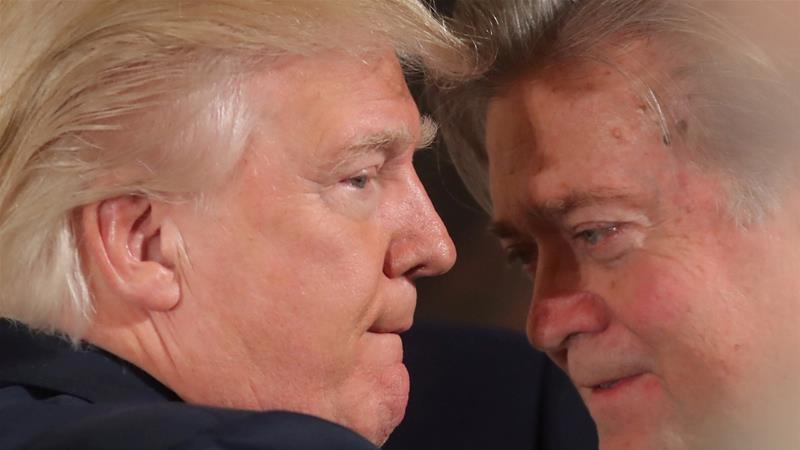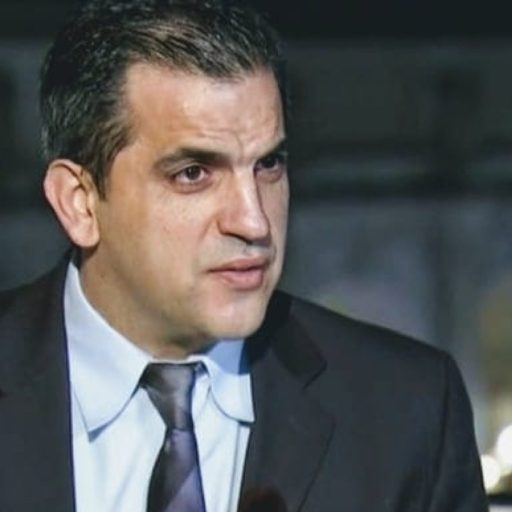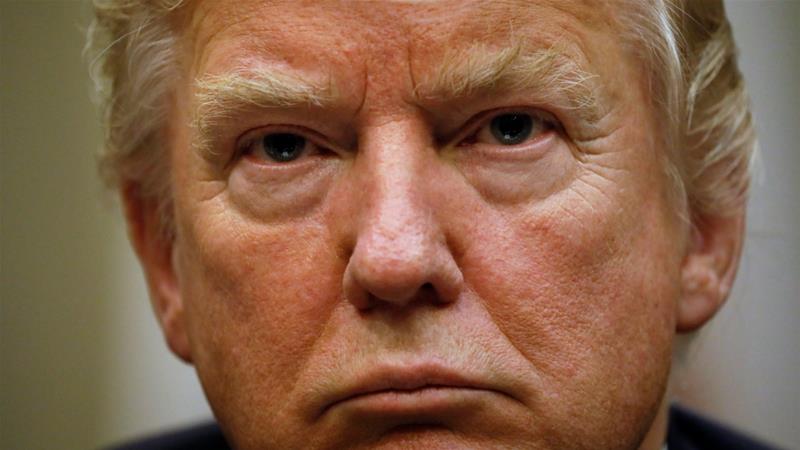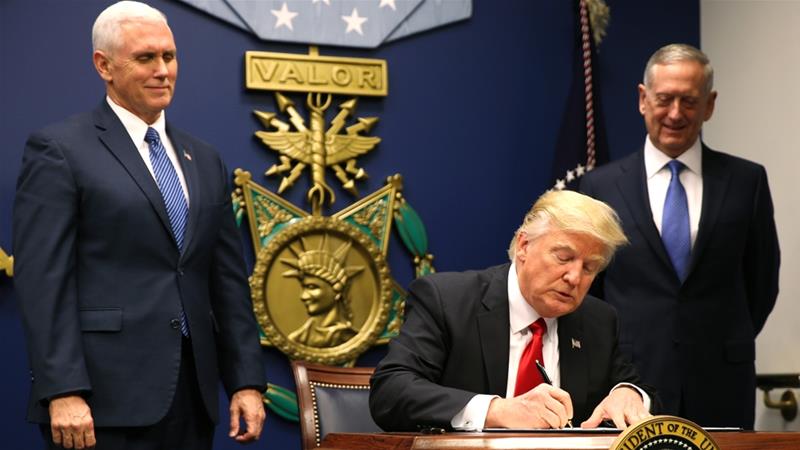Op-Ed
Op-Ed
Decoding Steve Bannon’s ouster from the NSC

Ousting Chief Strategist Steve Bannon from the National Security Council is one of many shake-ups that will continue to define Donald Trump’s White House. Yet, this realignment is different in the impact it will have on US foreign policy. Trump’s decision to oust his chief strategist Bannon is significant, but it doesn’t mean populism left the White House. Here’s a link to my latest Op-Ed…
Op-Ed
US expects allies to pick up the pieces after ISIL

The only good reason to have a meeting is to deliberate and decide on a shared objective. From that business angle, the March 22 meeting in Washington of the Global Coalition to defeat the Islamic State of Iraq and the Levant (ISIL) did not serve any purpose. The US message to its allies was clear: let us alone deal a military blow to ISIL, you deal with the day after. Here’s a link to my latest Op-Ed about the Trump Administration’s approach in the Global Coalition meeting…
Op-Ed
The Sheriff of Manbij: US makes debut in the Syrian War
The recent show of force in Manbij meant to preserve the US priority of launching the Raqqa battle and not get distracted in shenanigans of identity politics. However, interventionism is addictive, it starts with a simple task and one thing can lead to another. Here’s a link to my latest Op-Ed on US policy in Syria.

Op-Ed
Trump’s ‘real estate’ approach to safe zones in Syria
A lot of question marks surround Trump’s vision of setting up safe zones in Syria. The Trump administration should not expect the safe zone to run on cruise control without heavy US involvement. Past experiences in Iraq and Bosnia tell us that US interest in enforcing such a zone will run out of steam over time and regional players will probably fill the vacuum and further feed the conflict. Here’s a link to my latest opinion piece for al-Jazeera.
Op-Ed
The US fatal mistake in northern Syria
The moment the Turkish incursion into Syrian territory began on August 24, the stage was set for a direct military confrontation between Ankara and Kurdish forces in northern Syria. The US attempt to play both sides of the fence in a volatile conflict is unraveling now, and Washington once again has overestimated its ability to shape the Middle East’s political dynamics. Here’s a link to my Op-Ed on Turkish intervention in Syria.
Op-Ed
The regional calculus of Turkish-Israeli reconciliation
It took Turkey and Israel nearly six years to turn the page on the 2010 Gaza flotilla raid. While the timing cannot be more significant, there are questions about the regional effect of this rapprochement and the calculus behind the simultaneous shift in Turkish and Israeli policies aimed at rearranging their strategic postures in the Middle East. My latest op-ed on the regional calculus of Turkish-Israeli reconciliation.

Op-Ed
Saudi Arabia and the Houthis: The cost of being neighbours

The Arab Weekly
Joe Macaron
The assumption since last year was that Yemen had officially become a Saudi-Iranian battlefield. Defending the capital Sana’a was meant to prevent a fourth Arab capital from falling into the hands of the Persian empire. Yemenis were told that narrative as they watched lives slip away — more than 6,400 have died according to the United Nations, 2.8 million were displaced and 82% of the population is in desperate need of aid. Yet, Saudi Foreign Minister Adel al-Jubeir reminded us on May 14th that Houthis are “our neighbours” after all.
Continue reading “Saudi Arabia and the Houthis: The cost of being neighbours”
Op-Ed
Al-Sadr challenges US-Iran deal in Iraq

On April 30th, months into Iraq’s political crisis and two days after the visit of US Vice-President Joe Biden to Iraq, loyalists of conservative Shia cleric Muqtada al-Sadr broke down the high concrete walls surrounding central Baghdad’s Green Zone in a challenge to the tacit agreement between the United States and Iran. Al-Sadr’s move shows how fragile is situation in Iraq and how quickly United States can lose control over country it once ruled. Read my latest piece on Iraq.
Op-Ed
The reality of Iran’s nuclear deal is settling in

The moment the nuclear agreement was reached between Iran and the P5+1 countries, it became clear that the devil would be in the details. Despite Iran’s testing of ballistic missiles and the additional US sanctions on Tehran during the first 90 days of Implementation Day, there is no doubt that the nuclear deal is here to stay. Read my latest analysis.


